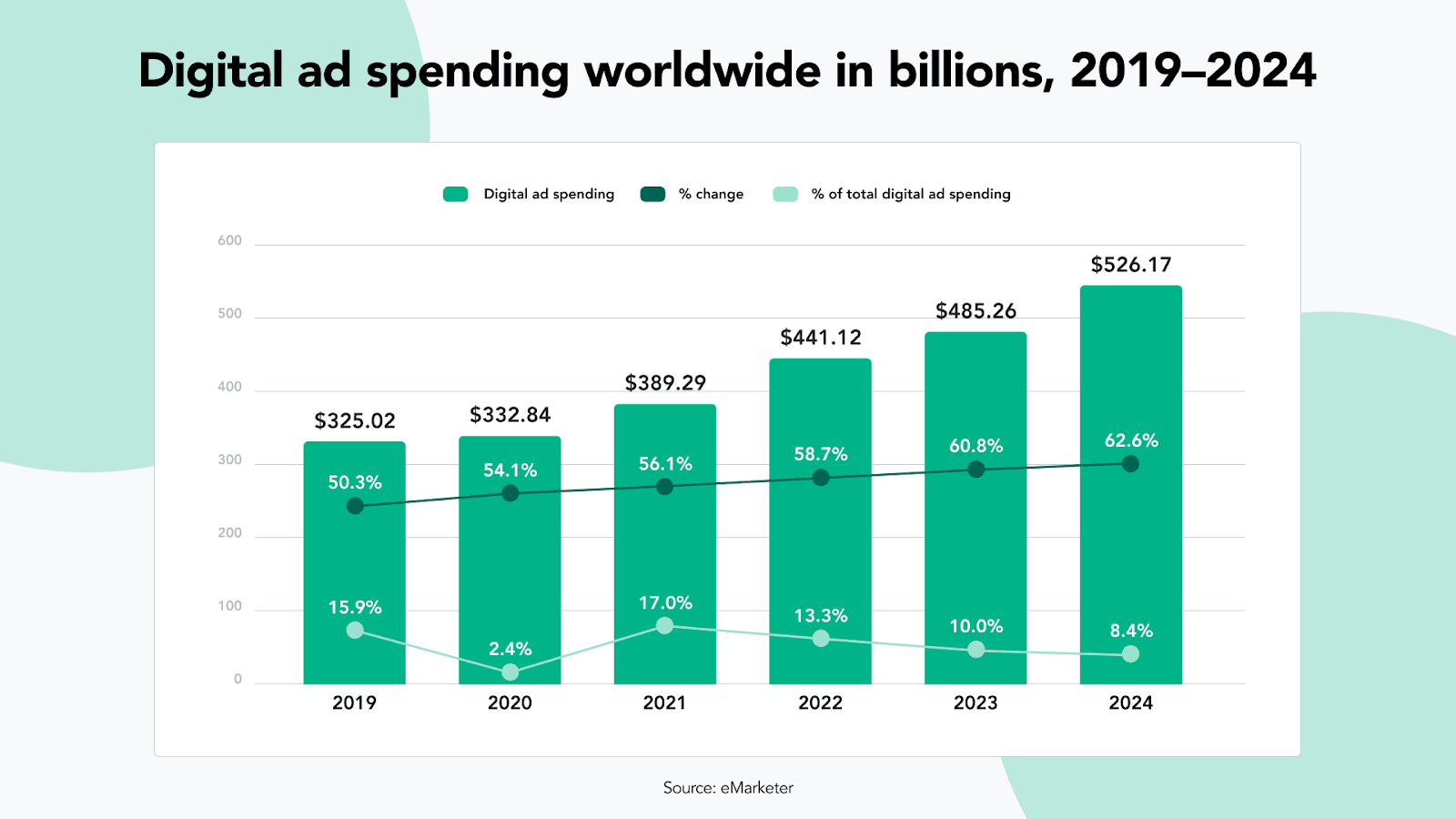
Ranking on page 1 of Google is the holy grail for website owners and marketers alike. Why? Because it can completely transform your online presence and drive massive traffic to your site. In this article, we’ll unveil the secrets to unlocking success and securing that coveted top spot.
When your website ranks on page 1 of Google, you gain credibility and visibility. Being among the top search results signals to users that your website is trustworthy, relevant, and an authority in your industry. As a result, you’ll generate more organic traffic, increase brand awareness, and attract potential customers who are actively searching for products or services you provide.
But how can you achieve this coveted position? It requires a combination of factors such as keyword optimization, high-quality content creation, technical website optimization, and an effective backlink strategy. By implementing a sound SEO strategy, you can boost your website’s chances of appearing on page 1 of Google and reaping the rewards that come with it.
In this article, we’ll dive deeper into the tactics and strategies that can help you climb the search engine rankings, unlock success, and propel your brand to new heights. Get ready to take your website to the next level and optimize your chances of ranking on page 1 of Google.
The importance of ranking on page 1 of Google
When it comes to search engine optimization (SEO), your website’s ranking on Google can make or break your online success. Studies have shown that the majority of users don’t click beyond the first page of search results. Therefore, if your website isn’t on page 1, you’re missing out on a significant amount of potential traffic and customers.
Appearing on page 1 of Google offers numerous benefits for your website and business. Firstly, it provides instant credibility. Users tend to trust the websites that appear at the top of search results, as they perceive them to be more authoritative and reliable. This can significantly boost your brand’s reputation and increase user trust in your products or services.
Secondly, ranking on page 1 drives substantial organic traffic to your website. Users are more likely to click on the top search results, resulting in a higher click-through rate (CTR) for your website. This increased traffic can lead to more conversions, whether it’s making a purchase, filling out a contact form, or subscribing to your newsletter.
Lastly, appearing on page 1 of Google enhances your brand’s visibility and awareness. Users who see your website listed multiple times in search results are more likely to remember your brand and consider it as a reliable option. The more visible your website becomes, the more likely it is to attract potential customers who are actively searching for the products or services you offer.
How search engines work
Before we delve into the strategies for ranking on page 1 of Google, it’s essential to understand how search engines work. Search engines like Google use complex algorithms to analyze and rank websites based on various factors. These algorithms aim to provide users with the most relevant and high-quality search results.
When a user enters a query into the search engine, it quickly scans its index to find web pages that are most likely to answer the user’s query. The search engine then uses its ranking algorithm to assign a position to each web page based on its relevance and authority. The goal is to present the most accurate and helpful results to the user.
Search engines evaluate websites based on hundreds of ranking factors, including keyword usage, content quality, website structure, user experience, and backlink profile. Understanding these factors and optimizing your website accordingly can significantly improve your chances of ranking on page 1 of Google.
Understanding Google’s ranking factors
Google’s ranking algorithm incorporates numerous factors to determine the relevance and authority of a website. While the exact weightage of each factor is a closely guarded secret, there are several key elements that play a crucial role in determining your website’s position in search results.
One of the most critical ranking factors is the relevance of your content to the user’s search query. Google analyzes the keywords used in the search query and matches them with the keywords on your web pages. It’s essential to optimize your content by strategically incorporating relevant keywords to increase your chances of ranking higher.
Another important factor is the quality and uniqueness of your content. Google values websites that provide valuable and original information to users. High-quality content that answers users’ questions, offers in-depth insights, and provides solutions to their problems is more likely to rank higher in search results.
Technical optimization is also crucial for ranking on page 1 of Google. Search engines consider factors such as website speed, mobile-friendliness, secure HTTPS connection, and clean code structure. Ensuring that your website is technically optimized will improve its overall performance and increase its chances of appearing on page 1.
Conducting keyword research for SEO
Keyword research is a fundamental aspect of any SEO strategy. It involves identifying the keywords and phrases that users are typing into search engines to find information related to your industry. By targeting these keywords in your content, you can increase your visibility and attract highly relevant traffic to your website.
Start by brainstorming a list of relevant topics and terms related to your business. Use keyword research tools like Google Keyword Planner, SEMrush, or Ahrefs to expand your list and get insights into search volume and competition for each keyword. Focus on long-tail keywords that are more specific and targeted, as they often have less competition and higher conversion rates.
Once you have a list of keywords, strategically incorporate them into your website’s content. However, it’s essential to use them naturally and avoid keyword stuffing, as this can negatively impact your rankings. Aim for a good balance between optimizing for keywords and providing valuable, user-friendly content.
On-page optimization techniques for higher rankings
On-page optimization refers to the strategies and techniques used to optimize individual web pages to improve their search engine rankings. It involves optimizing various elements on your web pages to make them more relevant and user-friendly.
One crucial aspect of on-page optimization is optimizing your meta tags, including title tags and meta descriptions. These tags provide a concise summary of your web page’s content and help search engines understand what your page is about. Including relevant keywords in your meta tags can significantly improve your visibility in search results.
Additionally, optimize your web page’s headings (H1, H2, H3, etc.) by including keywords and structuring them hierarchically. Use descriptive URLs that include keywords, optimize your images with alt tags, and ensure your content is well-structured with proper formatting.
Another essential on-page optimization technique is creating high-quality, informative, and engaging content. Your content should be relevant, well-researched, and provide value to your target audience. Use relevant keywords naturally throughout your content, but always prioritize user experience and readability.
Off-page optimization strategies to improve search visibility
While on-page optimization focuses on optimizing individual web pages, off-page optimization refers to techniques used outside of your website to improve its search engine rankings. Off-page optimization primarily revolves around building high-quality backlinks to your website and increasing its overall authority and credibility.
Backlinks are links from other websites that point to your website. They act as a vote of confidence and authority for your website in the eyes of search engines. The more high-quality backlinks you have from reputable websites, the more likely your website is to rank higher in search results.
There are several strategies you can employ to build backlinks to your website. One effective strategy is creating high-quality, shareable content that naturally attracts backlinks. This can include informative blog posts, comprehensive guides, infographics, or industry reports. Promote your content through outreach and social media to increase its visibility and encourage other websites to link to it.
Another strategy is guest blogging, where you write and publish articles on other websites in your industry. This allows you to showcase your expertise, reach a wider audience, and earn valuable backlinks to your website. Additionally, participating in industry forums, directories, and online communities can also help you gain exposure and build backlinks.
The role of backlinks in ranking on page 1 of Google
Backlinks play a critical role in ranking on page 1 of Google. They are considered one of the most influential ranking factors and are often seen as a vote of confidence and authority for your website. Search engines like Google perceive websites with a significant number of high-quality backlinks as more trustworthy and relevant.
However, not all backlinks are created equal. It’s crucial to focus on building high-quality backlinks from authoritative websites in your industry. These backlinks carry more weight and can significantly boost your website’s search engine rankings. On the other hand, low-quality or spammy backlinks can harm your website’s reputation and decrease your chances of ranking on page 1.
To identify high-quality backlink opportunities, research websites that are relevant to your industry and have a strong online presence. Reach out to them with valuable content or collaboration opportunities that can benefit both parties. Building a network of high-quality backlinks takes time and effort, but the rewards in terms of increased visibility and rankings are well worth it.
Measuring and tracking your website’s performance
To gauge the effectiveness of your SEO efforts and track your progress towards ranking on page 1 of Google, it’s crucial to measure and analyze your website’s performance regularly. This allows you to identify areas for improvement, make data-driven decisions, and optimize your SEO strategy accordingly.
Start by setting up Google Analytics and Google Search Console for your website. These tools provide valuable insights into your website’s traffic, user behavior, keyword rankings, and more. Monitor your website’s organic search traffic, the number of impressions and clicks your web pages receive, and the keywords that drive the most traffic.
Additionally, use SEO tools like SEMrush, Ahrefs, or Moz to track your keyword rankings, analyze your competitors’ strategies, and identify new opportunities. Regularly review your website’s performance metrics, such as bounce rate, time on page, and conversion rate, to identify areas that need improvement.
By consistently monitoring and analyzing your website’s performance, you can make data-driven optimizations that will help you climb the search engine rankings and achieve page 1 visibility on Google.
Common mistakes to avoid when trying to rank on page 1
While optimizing your website for page 1 rankings is essential, it’s equally important to avoid common mistakes that can hinder your progress. Here are a few mistakes to watch out for:
1. Ignoring user experience: It’s crucial to prioritize user experience by ensuring your website is fast, mobile-friendly, and easy to navigate. A poor user experience can lead to high bounce rates and lower rankings.
2. Keyword stuffing: Overusing keywords in your content can make it appear spammy and negatively impact your rankings. Focus on creating high-quality, valuable content that naturally incorporates relevant keywords.
3. Purchasing low-quality backlinks: Buying backlinks from low-quality or spammy websites can harm your website’s reputation and lead to penalties from search engines. Focus on building high-quality backlinks through organic outreach and content creation.
4. Neglecting technical optimization: Technical issues like slow page speed, broken links, or duplicate content can harm your website’s rankings. Regularly audit and optimize your website’s technical aspects to ensure optimal performance.
5. Ignoring analytics and data: Failing to measure and track your website’s performance can make it difficult to identify areas for improvement and make informed decisions. Regularly analyze your website’s data and make data-driven optimizations.
By avoiding these common mistakes and staying focused on best practices, you can increase your chances of ranking on page 1 of Google and unlocking the full potential of your website.
Conclusion: Taking your website to the next level with page 1 rankings
Ranking on page 1 of Google is a game-changer for your website and business. It provides credibility, visibility, and substantial organic traffic that can lead to increased conversions and brand awareness.
To achieve page 1 rankings, focus on implementing a comprehensive SEO strategy that encompasses keyword research, on-page optimization, off-page optimization, and regular performance tracking. By understanding Google’s ranking factors, creating high-quality content, optimizing your website’s technical aspects, and building a network of high-quality backlinks, you can significantly improve your website’s chances of appearing on page 1 of Google.
Remember, SEO is an ongoing process that requires continuous effort and adaptation. Stay updated with the latest industry trends and algorithm changes, and be willing to adjust your strategy accordingly. With persistence, dedication, and a solid SEO approach, you can unlock success, propel your brand to new heights, and dominate the search engine rankings. Good luck!




